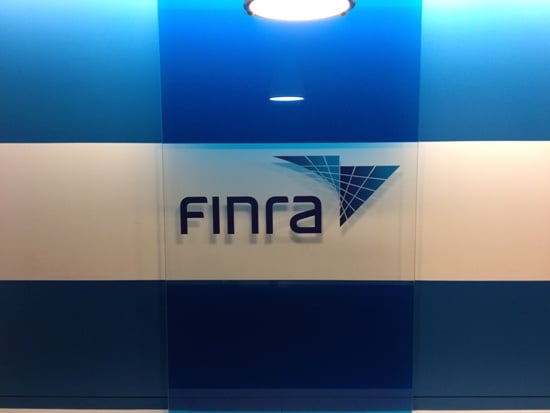Finra will continue to zero in on yield-oriented products this year but the self-regulator also will be focusing on business development companies, exchange-traded funds and products that use leverage and the use of automated investment advice.
On Friday, the Financial Industry Regulatory Authority Inc. posted its 2013 regulatory and examination
priorities letter . The annual letter gives the broker-dealer community a heads-up on what Finra examiners will be looking for in the coming year.
Finra is “particularly concerned about sales practice abuses, yield-chasing behaviors and the potential impact of any market correction, external stress event or market dislocation on market prices,” the self-regulator said in the letter.
Referring to BDCs, Finra warned that they have “significant market, credit and liquidity risks” and risk over-leveraging illiquid portfolios with low-cost financing. Leveraged loans are relatively illiquid and difficult to value, while CMBS and high-yield carry higher risks than normal, given their historically low yields, Finra said. High distribution rates on closed-end funds attract investors who may not understand that some funds are returning capital, the letter warned.
The Finra notice also expressed concern about a “proliferation” of ETFs and ETNs that use leverage or track volatility measures, emerging markets and currencies.
Also for the first time this year, Finra examiners will be looking at the use of automated investment advice. Finra said it is concerned that the automated advice platforms may not gather enough information about investors and fail to match portfolios with risk appetite.
Last year, Finra warned firms that it would focus on social media and electronic communications, but that area was dropped from the 2013 exam priority letter.
Structured products also were dropped from the list this year.
The annual exam priority letters cover a long list of areas beyond just retail products and sales practices.
According to compliance experts, just because Finra doesn't include something in a current letter doesn't mean examiners won't be looking into it.
“With any new product, like BDCs, that are growing 350% year over year … it’s just a natural that Finra would want to make sure it’s growing appropriately,” said Kevin Hogan, president of the Investment Program Association, which represents sponsors of direct-participation programs.
Non-traded BDCs have grown to nearly $3 billion in assets, he said.
“I would be surprised if [Finra] found anything out of the ordinary,” Mr. Hogan said.







